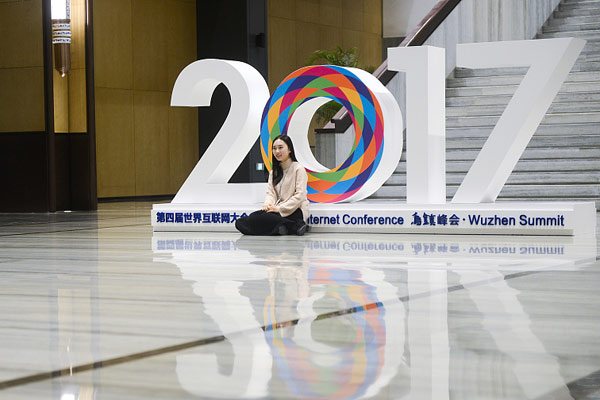

BEIJING - High-profile speeches by Chinese leaders have refuted claims of a derailing of growth in the world's second-largest economy, highlighting confidence among the new leadership in carrying on rebalancing efforts.
In the latest effort to assure the world about the economy's health, Premier Li Keqiang said Wednesday that the Chinese economy, which is at a crucial stage of transformation and upgrading, is moving forward in a steady way.
"As long as the economy runs within the reasonable range, we will keep the macro economic policy generally stable, and focus on shifting the growth model and on structural readjustment," the premier said at the opening ceremony of the Summer Davos Forum in China's northeastern port city of Dalian.
The statement echoed remarks made by President Xi Jinping last week in a speech delivered at the eighth G20 summit.
"China's economic fundamentals are sound," Xi said. "China has realized that it has to advance structural reforms in order to solve the problems hindering its long-term economic development, even though it will mean slower growth."
The speeches showed that Chinese leaders have made a sober assessment of the economy's growth prospects, judging that the government should neither relax its vigilance against risks nor overlook growth potentials, said Kuang Xianming, director of economic research at the China Institute for Reform and Development.
Since taking office in March, the new administration has demonstrated greater tolerance for slower growth in a bid to restructure the economy, which has aroused fears that the shift in focus away from growth will lead to crises in the short term and a loss of growth momentum in the long run.
"The speeches have made clear that the economic slowdown was self-initiated although there was the choice to stimulate growth," Kuang said.
Sluggish overseas demand and government reluctance to ease policies have left China's growth stuck in a protracted slowdown, with second-quarter growth declining to 7.5 percent from 7.7 percent in the first three months and 7.9 percent in the final quarter of 2012.
"Clearly, a consensus has been reached among the leadership that the huge consumption market, vigorous investment and ongoing urbanization are areas for potential growth but that multiple problems exist at the same time," Kuang said. "So measures serving both long-term and immediate interests have been adopted."
 4th World Internet Conference concludes
4th World Internet Conference concludes
 Starbucks Reserve Roastery set to open in Shanghai
Starbucks Reserve Roastery set to open in Shanghai
 Smile to get discounts in Tmall's unmanned supermart
Smile to get discounts in Tmall's unmanned supermart
 Top 10 richest Chinese women in 2017
Top 10 richest Chinese women in 2017
 World leading internet sci-tech achievements released in Wuzhen
World leading internet sci-tech achievements released in Wuzhen
 Top tech CEOs take to the stage as Wuzhen Summit opens
Top tech CEOs take to the stage as Wuzhen Summit opens
 Major topics at 4th World Internet Conference
Major topics at 4th World Internet Conference
 'Made in China' dinosaurs amuse the world
'Made in China' dinosaurs amuse the world